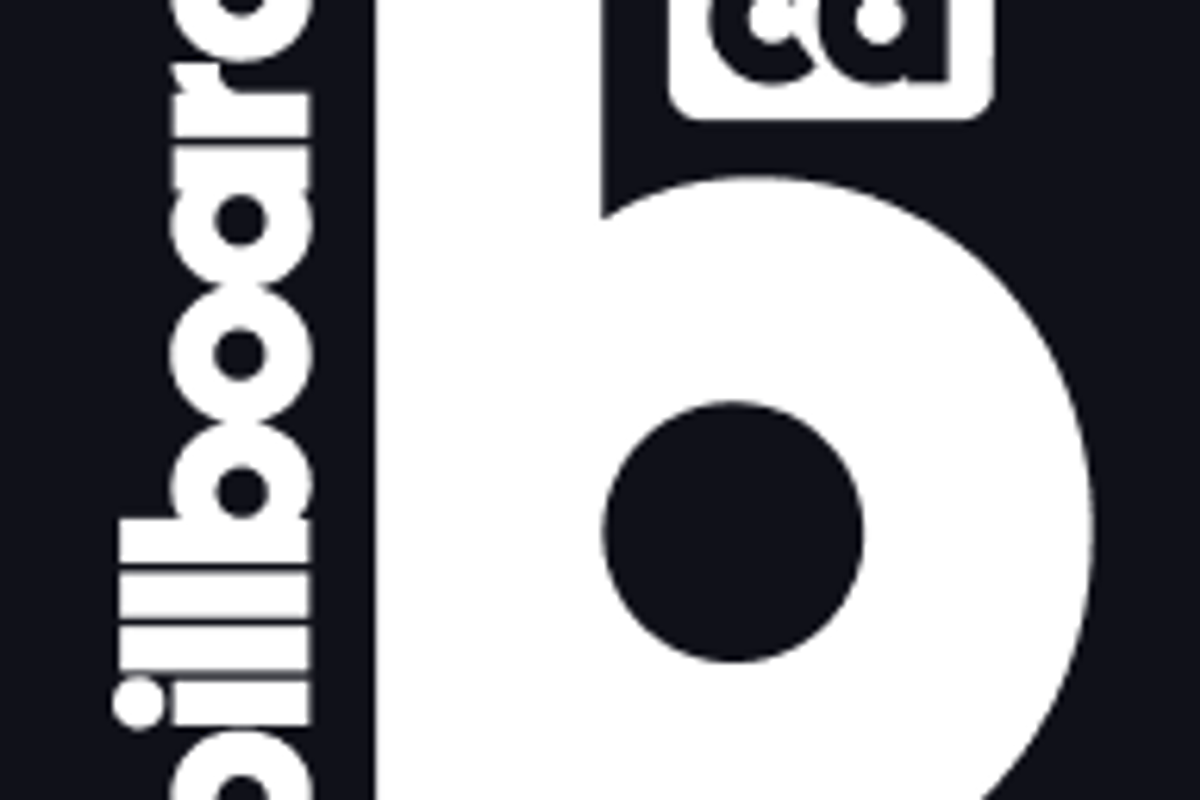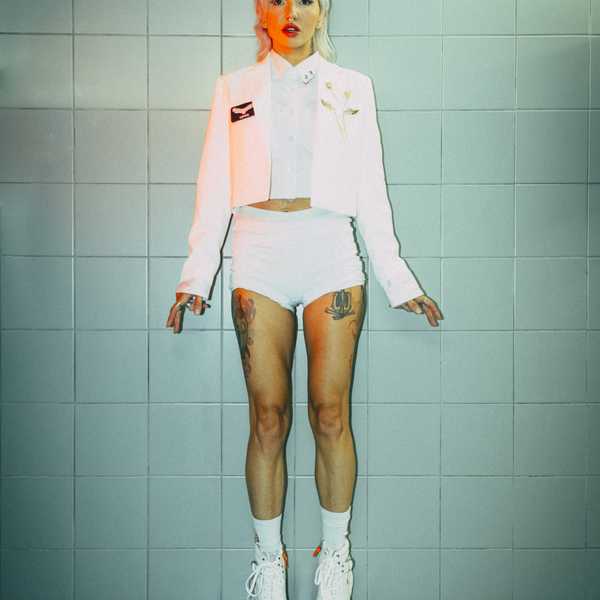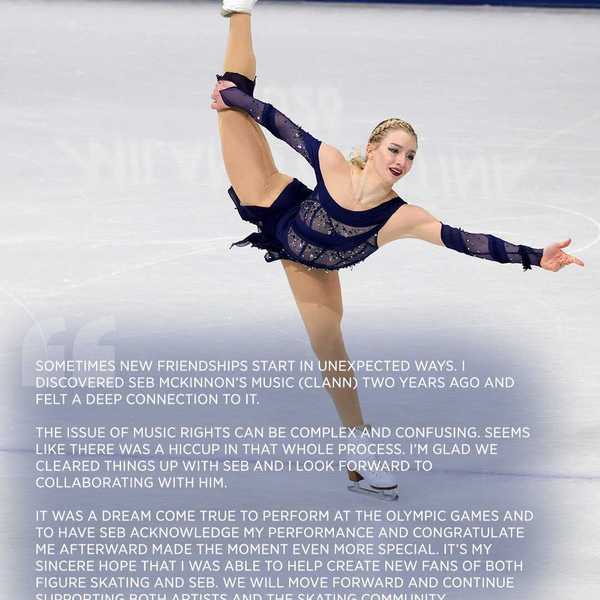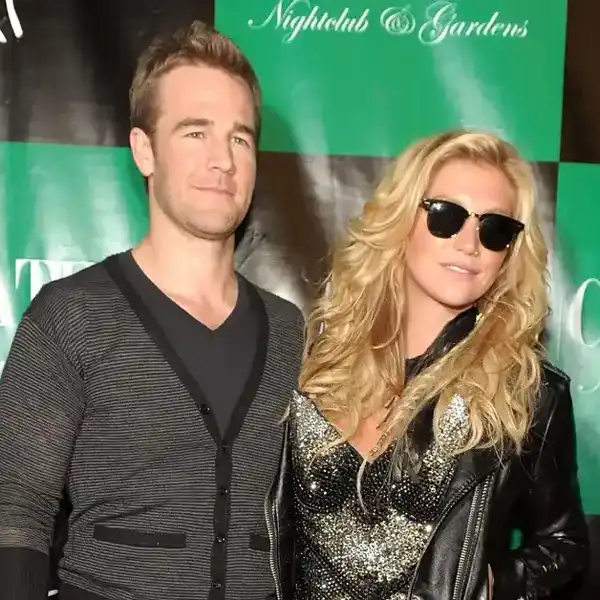advertisement
Billboard is a part of Penske Media Corporation. © 2023 Billboard Media, LLC. All Rights Reserved.
advertisement
Popular
Latest News
advertisement
BILLBOARD CANADA FYI
A weekly briefing on what matters in the music industry
By signing up you agree to Billboard Canada’s privacy policy.
advertisement
advertisement

Gilbert Flores/Billboard
Chappell Roan at the 68th GRAMMY Awards held at the Crypto.com Arena on Feb. 1, 2026, in Los Angeles.
Music News
Wasserman Fallout: Every Artist Who Has Spoken Out Over Founder’s Epstein Ties (Updating)
Clients of Casey Wasserman's namesake agency have begun defecting after his relationship to Jeffrey Epstein accomplice Ghislaine Maxwell came to light.
13 February
On Thursday (Feb. 5), Best Coast frontwoman Bethany Cosentino was the first artist signed to the powerful Wasserman agency to speak out over revelations that its founder and CEO, Casey Wasserman, had carried on a flirtatious relationship with convicted sex trafficker Ghislaine Maxwell — the main accomplice of convicted child sex predator Jeffrey Epstein — after the latest tranche of 3 million files in the Epstein case was released. Expressing anger over Wasserman’s apology, in which the executive said he “deeply regret[s]” his communications with Maxwell, Cosentino called for Wasserman to step down from his post and for the agency to change its name, among other demands.
advertisement
Since Cosentino’s Instagram post went live, several more artists — mainly indie acts — have responded to the controversy. Though these responses have varied somewhat, most have either announced their exit from the agency over the revelations or seemingly threatened to leave if Wasserman isn’t held accountable for his actions. Nearly all have expressed support for their agents. On Monday evening (Feb. 9), Chappell Roan became the first major star to speak out on the issue, writing that she had left the agency amid the growing outrage (without explicity mentioning Epstein or Maxwell).
The growing number of artist defections is now continuing to snowball into a major issue for Wasserman and his namesake agency, which represents such superstars as Ed Sheeran, Coldplay, SZA, Noah Kahan, Lorde and Kenny Chesney. Will any of those other big acts follow Roan’s lead?
Below, we’ve rounded up every Wasserman artist who has spoken out on the issue. We’ll continue updating the list as more of them make their feelings known.
(Ed. Note: The Wasserman agency has declined multiple requests for comment on the artist departures.)
Chappell Roan
On Monday (Feb. 9), Roan posted to Instagram that she had parted ways with the agency, stating, “I hold my teams to the highest standards and have a duty to protect them as well. No artist, agent or employee should ever be expected to defend or overlook actions that conflict so deeply with our own moral values. I have deep respect and appreciation for the agents and staff who work tirelessly for their artists and I refuse to passively stand by. Artists deserve representation that aligns with their values and supports their safety and dignity. This decision reflects my belief that meaningful change in our industry requires accountability and leadership that earns trust.”
advertisement
Orville Peck
Peck announced his exit from the agency via Instagram on Tuesday (Feb. 10), writing, “In light of the recent findings regarding Casey Wasserman, I have made the decision to no longer be represented by the Wasserman talent agency.”
“My heartfelt thanks goes out to my personal team, some of whom I have respected, trusted and worked with for close to a decade. I leave with a huge amount of compassion for the rest of the agents and staff at the agency, who are being left with a situation that impacts all of our work and livelihoods.”
Bethany Cosentino (Best Coast)
On Thursday (Feb. 5), Cosentino, the frontwoman of indie pop duo Best Coast, took to Instagram to call for Wasserman to step down and for the agency to change its name. She also demanded the removal of her band’s name from the company’s website.
advertisement
“As an artist represented by Wasserman, I did not consent to having my name or my career tied to someone with this kind of association to exploitation,” Cosentino wrote in part. “Staying quiet isn’t something I can do in good conscience — especially in a moment when men in power are so often protected, excused, or allowed to move on without consequence. Pretending this isn’t a big deal is not an option for me.”
advertisement
Dropkick Murphys
The long-running Irish-American band revealed via Instagram Stories that it had left the agency in light of the new revelations, writing in part, “It saddens us to part ways with [our agents], but the namesake of the agency is in the Epstein files so…we GONE.”
Rachel Brown (Water From Your Eyes)
Brown, vocalist of the indie duo, slammed Wasserman’s apology in an Instagram post, writing that his “‘deepest regrets’ and PR apologies mean nothing in the wake of violence against women and children caused by Jeffrey Epstein, Ghislaine Maxwell, and their accomplices. There must be accountability for the atrocities committed by the ruling class. We cannot live in a world that allows for this injustice to occur with no consequence.
Brown added that she, her bandmate Nick Amos and their manager “have no interest in being affiliated with Casey Wasserman and have absolutely zero intention of condoning his actions by silently remaining under his namesake banner. We trust our booking agents and are waiting to understand what our options are.”
Wednesday
Taking to Instagram, the acclaimed rock band said it had started “the process of extracting ourselves from” the Wasserman agency in light of the revelations. “Continuing to be represented by a company led by and named after Casey Wasserman goes against our values and cannot continue,” the statement continued. For the sake of his staff we hope that he steps down from the company and it is rebranded, but until that happens or we find a new home at a new agency we will not continue to be associated with Wasserman.”
Beach Bunny
On Monday (Feb. 9), the rock band released a statement on Instagram, writing that its members were “hugely disappointed and disgusted” to learn of Wasserman’s association with Maxwell, adding that his “actions are abhorrent and disturbing on every level” and that he must “remove himself and his name from the agency.”
advertisement
Alexis Krauss (Sleigh Bells)
In a long and wide-ranging Instagram post on Monday (Feb. 9), Alexis Krauss, one-half of the duo Sleigh Bells, said that while she would “love to just leave Wasserman Music” over the revelations, she and her bandmate Derek E. Miller would not “because I love and respect our agent and I trust him to make the decision that is best for himself, his family and his artists. The agents at Wasserman are not the villains.”
Krauss added, “In my opinion it’s not the responsibility of the artists, especially those struggling to make a living, to fix these broken systems. I’m not saying we’re powerless, but without systemic change and accountability for those at the highest levels of power, no meaningful change is going to occur. … None of these corporations are going to bat an eye if Sleigh Bells bails on them. It’ll just leave us losing more money on tour and making less streaming income than we do now. It’s a s–tty place to be but it’s the truth. What we need is greater regulation and accountability at the highest levels of the industry.”
advertisement
Sylvan Esso
The pop duo, composed of Amelia Meath and Nick Sanborn, announced that it had left the agency following the revelations about Wasserman, writing that they are “so reprehensible that we can no longer allow our work to have any association with him or his name. We have been with our amazing agent for our entire career (since way before Wasserman acquired their former company in 2021), but she is just one of hundreds of brilliant agents, assistants, and other employees whose lives have been completely upended by both his behavior and his inability to be accountable of this actions. We don’t know yet where we’ll be next, but it will not be anywhere he is.”
Gigi Perez
On Tuesday (Feb. 10), Perez announced via Instagram Stories that she would depart the agency over the Casey Wasserman revelations.
“In light of the deeply disturbing news that has come to life regarding Casey Wasserman, I will no longer be represented by the agency,” she wrote. “It is devastating to witness how power in this industry is so often protected from accountability for choices that cause irreversible harm, and I will not tolerate it.
“I want to be clear that there are many good and trustworthy people at Wasserman whose lives and livelihoods have been collaterally impacted by this. I know many within the organization are equally enraged and devastated by what has come to light.
“I am currently working closely with my team as we take the proper next steps to appropriately restructure moving forward.”
Later in her statement, Perez added a note of support for the agency’s staff, writing that they “deserve the space to determine how they move through this transition with my support. One man’s actions should not define or dismantle the futures of so many honest and dedicated individuals. I genuinely hope they are able to reach a resolution that allows them to move forward without him and rebuild what they’ve worked so hard to create.”
Bully
Bully, the artist project of singer-songwriter Alicia Bognanno, announced via Instagram on Wednesday (Feb. 11) that she parted ways with the agency “immediately upon hearing the news” of Wasserman’s relationship with Maxwell. “F–k Casey Wasserman,” Bognanno continued. “There’s no money in the world that would keep me at a place that that man owns.”
Chelsea Cutler
On Tuesday (Feb. 10), the alt-pop singer-songwriter announced via Instagram that she had cut ties with the Wasserman agency over Casey Wasserman’s “direct involvement with Ghislaine Maxwell and his ties to Jeffrey Epstein.”
“In a time when many of us feel particularly angry, helpless, and exhausted by our country’s climate, it simply feels incongruent with my values to not speak up or take action,” Cutler wrote.
She added, “While I am grateful for my day-to-day team at the agency, I cannot in good conscience be a complicit participant and remain silent witnessing these unethical actions. It is our responsibility as artists to take any possible opportunity to exercise our personal agency and stand for what we believe in.”
Levity
The Chicago electronic trio posted an Instagram story on Wednesday (Feb. 11) stating, “We are no longer represented by the Wasserman talent agency. We do not stand for the actions of its CEO and refuse to be represented by his company. We love and appreciate our actual agents and we hope they can find a new scenario we can be a part of.
“We appreciate all of y’all for making us aware of this,” the statement continued, “and for your patience this last week while we navigated the situation. This is proof that our voices matter and we have a chance to make change together in this world.”
Weyes Blood
On Tuesday (Feb. 10), the singer-songwriter (born Natalie Laura Mering) took to Instagram Stories to say she would be leaving the agency following the revelations.
“I have immense respect and affection for my booking agents, who are unfairly bearing the impact of the situation over at my booking agency, Wasserman,” she wrote. “As I continue conversations with them about their futures, I want to be unequivocally clear: I will not be remaining with Wasserman. Casey Wasserman’s behavior is fundamentally at odds with everything I value.”
Hot Mulligan
Pop-punk group Hot Mulligan wrote via Instagram Stories on Wednesday (Feb. 11) that it would “no longer be affiliated with [the Wasserman agency] if Casey is still in the picture,” adding that it was “allowing our booking agents…to figure out their next moves.”
“We would like to make it clear that we stand with the victims of Epstein’s abuse and trafficking and have no personal ties to Casey Wasserman himself,” the band added.
Subtronics
American DJ Subtronics (born Jesse Kardon) wrote via Instagram Stories on Wednesday (Feb. 11) that he has “no [intention] of staying at a company affiliated with Casey Wasserman,” calling the founder and CEO’s actions “atrocious.”
“Accountability is f–king important and he should step the f–k down and out of everything he is part of,” he added. “I’m sad that my agent of ten years, and so many others impacted by this, are dealing with the actions from a gross CEO far above them. They deserve autonomy, clarity, and the opportunity to shape their own futures.”
Louis the Child
On its social accounts on Thursday (Feb. 12), the electronic music duo (composed of Robby Hauldren and Frederic J. Kennett) released a statement calling for patience as it navigates the fallout from the Casey Wasserman revelations — while calling for Wasserman himself to step down.
“We’ve seen the news about Casey Wasserman and in no way shape or form condone it. It’s f–ked up and not what we stand for,” the statement reads. “We’ve been with our agent for 10 years now, he’s like family. We’re allowing him time to navigate his next move and figuring out what our options are. These things can take time though so please be patient. What really would make this all better for everyone (and is just the right thing to do) is if Casey stepped down, and we urge him to do so immediately.”
Rezz
Via Instagram Stories on Thursday (Feb. 12), the Ukrainian-Canadian DJ wrote that she has “no intention of staying at a company owned by Casey Wasserman,” adding, “My team has been working to figure this out.”
Seven Lions
The DJ (born Jeff Montalvo) wrote via Instagram Stories on Thursday (Feb. 12) that while he has “no intention of staying at Wasserman under the current name and ownership of Casey Wasserman,” he wants to give his agents “the space to navigate a really difficult situation that none of us asked for. None of the agents and people I work with are responsible for what’s happening, and it’s genuinely painful to see them put in this position.”
He continued, “This is not something that can be brushed aside, or allowed to quietly fade away. It requires direct action, real responsibility, and meaningful change. I am not willing to be part of a system where serious issues are acknowledged publicly and then forgotten privately.”
John Summit
Summit, currently one of the biggest stars in electronic music, wrote via X and Instagram on Thursday (Feb. 12) that he would leave the agency if Casey Wasserman fails to step down.
“If casey wasserman doesn’t step down, i will not remain with the agency,” Summit wrote. “His actions do not reflect the integrity of the agents i work with, and if change does not happen, we will take our talents elsewhere.”
In response to a comment on X, Summit added that he had “zero plans on leaving [his] agents,” adding, “they aren’t involved in this so it’s been an ongoing process how to deal with this.”
Local Natives
On Thursday (Feb. 12), the indie rock band wrote on Instagram that it is “leaving the Wasserman agency amid the surfaced allegations against the company’s CEO.”
The band added, “We have been with our amazing booking agent our entire career, and if you’ve ever seen us play live, she and her team are the ones to thank for helping build our touring career alongside us. They are just one of the many teams whose jobs and lives are upended, and we don’t want to be part of an agency with him at the helm.”
Lane 8
The DJ (born Daniel Goldstein) released the following statement via Instagram Stories: “I have communicated to my team that I no longer wish to be represented by wasserman music agency. The continued abuse of power by those at the very top of this industry saddens me immensely, but I am encouraged by the artists, teams and agency staff who have come together in the hope of building something new that better represents our values. Thank you for your support.”
bbno$
The Canadian rapper (born Alexander Leon Gumuchian) said via Instagram on Friday (Feb. 13) that he was “appalled to hear about the actions and behaviors” of Casey Wasserman and would “be stepping away from my long time agents and best friends to ensure I don’t line [his] pockets.” He added that he would “be self booked” until “the music team at Wasserman find a solution that ensures we are no longer supporting someone like Casey Wasserman.” Only then, he said, will he “go back to working with my agents.”
He added, “I have been with my booking agents for the better part of 10 years, far before they were a part of the Wasserman organization. Them and their colleagues are a group of people with tremendous ethics and values. They were the first people to believe in me before I even had a manager.”
Dispatch
On Thursday (Feb. 12), the indie rock band said via Instagram that it could not “in good conscience continue our association with Wasserman Agency while [Casey Wasserman] remains in a leadership role,” adding that it would step away “until meaningful leadership changes are made.”
The band continued, “We want to be clear: we have deep respect and appreciation for the booking agents and team at Wasserman who have supported us and our music. This decision is not a reflection of their work or character, but a necessary stand for accountability and transparency within our industry. When associations intersect with individuals linked to systemic abuse and exploitation, those in positions of power must be held responsible.”
Daily Bread
On Wednesday (Feb. 11), the DJ (born Rhett Watley) wrote on Instagram Stories that he “has been in constant talks with my team since becoming aware” of the Casey Wasserman revelations, which he called “surprising, disgusting, and disheartening.”
“I hold my agents and team to an extremely high standard,” he continued. “I’m trusting that they are making the right decisions behind the scenes and Im giving them a moment to get things in order, but there will be changes.”
Tape B
On Instagram Stories, the DJ and producer (born Kemal Berk Alkanat) said he’s “absolutely disgusted” by “what’s going on with the Epstein files…and I refuse to be represented by a company whose CEO has ties with these monsters.”
He added that he and his agent, whom he said he has “a lot of love for,” “have no intentions on staying with this company but I’m going to give him some time to figure this out. Please know we are taking this matter very seriously and do not stand for the CEOS behavior.”
Mersiv
On Instagram Stories, the DJ wrote that he and his team “are trying to figure out what’s next” in light of the Casey Wasserman revelations, adding, “It’s mind blowing that the owner of Wasserman was tied to the files and without a doubt I can’t let myself or my team be represented by that. This is some extremely dark stuff going on and I’m praying for peace.”
keep readingShow less
advertisement
Popular
advertisement
Published by ARTSHOUSE MEDIA GROUP (AMG) under license from Billboard Media, LLC, a subsidiary of Penske Media Corporation.
advertisement

















